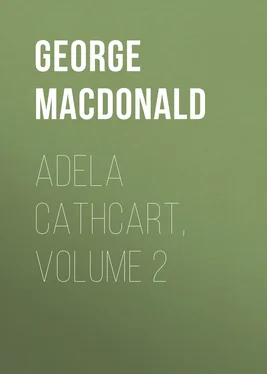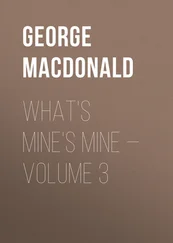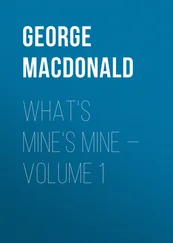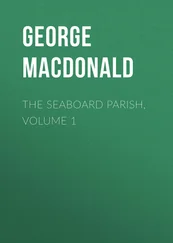George MacDonald - Adela Cathcart, Volume 2
Здесь есть возможность читать онлайн «George MacDonald - Adela Cathcart, Volume 2» — ознакомительный отрывок электронной книги совершенно бесплатно, а после прочтения отрывка купить полную версию. В некоторых случаях можно слушать аудио, скачать через торрент в формате fb2 и присутствует краткое содержание. Жанр: foreign_prose, foreign_religion, literature_19, foreign_antique, на английском языке. Описание произведения, (предисловие) а так же отзывы посетителей доступны на портале библиотеки ЛибКат.
- Название:Adela Cathcart, Volume 2
- Автор:
- Жанр:
- Год:неизвестен
- ISBN:нет данных
- Рейтинг книги:5 / 5. Голосов: 1
-
Избранное:Добавить в избранное
- Отзывы:
-
Ваша оценка:
- 100
- 1
- 2
- 3
- 4
- 5
Adela Cathcart, Volume 2: краткое содержание, описание и аннотация
Предлагаем к чтению аннотацию, описание, краткое содержание или предисловие (зависит от того, что написал сам автор книги «Adela Cathcart, Volume 2»). Если вы не нашли необходимую информацию о книге — напишите в комментариях, мы постараемся отыскать её.
Adela Cathcart, Volume 2 — читать онлайн ознакомительный отрывок
Ниже представлен текст книги, разбитый по страницам. Система сохранения места последней прочитанной страницы, позволяет с удобством читать онлайн бесплатно книгу «Adela Cathcart, Volume 2», без необходимости каждый раз заново искать на чём Вы остановились. Поставьте закладку, и сможете в любой момент перейти на страницу, на которой закончили чтение.
Интервал:
Закладка:
George MacDonald
Adela Cathcart, Volume 2
CHAPTER I.
SONG
I confess I was a little dismayed to find what a solemn turn the club-stories had taken. But this dismay lasted for a moment only; for I saw that Adela was deeply interested, again wearing the look that indicates abstracted thought and feeling. I said to myself:
"This is very different mental fare from what you have been used to, Adela."
But she seemed able to mark, learn, and inwardly digest it, for she had the appearance of one who is stilled by the strange newness of her thoughts. I was sure that she was now experiencing a consciousness of existence quite different from anything she had known before. But it had a curious outcome.
For, when the silence began to grow painful, no one daring to ask a question, and Mrs. Cathcart had resumed her knitting, Adela suddenly rose, and going to the piano, struck a few chords, and began to sing. The song was one of Heine's strange, ghost-dreams, so unreal in everything but feeling, and therefore, as dreams, so true. Why did she choose such a song after what we had been listening to? I accounted for it by the supposition that, being but poorly provided as far as variety in music went, this was the only thing suggested to her by the tone of the paper, and, therefore, the nearest she could come to it. It served, however, to make a change and a transition; which was, as I thought, very desirable, lest any of the company should be scared from attending the club; and I resolved that I would divert the current, next time, if I could.
This was what Adela sang; and the singing of it was evidently a relief to her:
I dreamt of the daughter of a king,
With a cheek white, wet, and chill;
Under the limes we sat murmuring,
And holding each other so still!
"Oh! not thy father's sceptre of gold,
Nor yet his shining throne,
Nor his diamond crown that glitters cold—
'Tis thyself I want, my own!"
"Oh! that is too good," she answered me;
"I lie in the grave all day;
And only at night I come to thee,
For I cannot keep away."
It was something that she had volunteered a song, whatever it was. But it is a misfortune that, in writing a book, one cannot give the music of a song. Perhaps, by the time that music has its fair part in education, this may be done. But, meantime, we mention the fact of a song, and then give the words, as if that were the song. The music is the song, and the words are no more than the saddle on which the music sits, the singer being the horse, who could do without a saddle well enough.—May Adela forgive the comparison!—At the same time, a true-word song has music of its own, and is quite independent, for its music, both of that which it may beget, and of that with which it may be associated.
As she rose, she glanced towards the doctor, and said:
"Now it is your turn, Mr. Armstrong."
Harry did not wait for a second invitation; for to sing was to him evidently a pleasure too great to be put in jeopardy. He rose at once, and sitting down at the instrument, sang—I cannot say as follows , you see; I can only say the following words :
Autumn clouds are flying, flying,
O'er the waste of blue;
Summer flowers are dying, dying,
Late so lovely new.
Labouring wains are slowly rolling
Home with winter grain;
Holy bells are slowly tolling
Over buried men.
Goldener lights set noon a-sleeping
Like an afternoon;
Colder airs come stealing, creeping
After sun and moon;
And the leaves, all tired of blowing
Cloudlike o'er the sun,
Change to sunset-colours, knowing
That their day is done.
Autumn's sun is sinking, sinking
Into Winter's night;
And our hearts are thinking, thinking
Of the cold and blight.
Our life's sun is slowly going
Down the hill of might;
Will our clouds shine golden-glowing
On the slope of night?
But the vanished corn is lying
In rich golden glooms.
In the churchyard, all the singing
Is above the tombs.
Spring will come, slow-lingering,
Opening buds of faith.
Man goes forth to meet his spring,
Through the door of death.
So we love, with no less loving,
Hair that turns to grey;
Or a step less lightly moving
In life's autumn day.
And if thought, still-brooding, lingers
O'er each bygone thing,
'Tis because old Autumn's fingers
Paint in hues of Spring.
The whole tone of this song was practical and true, and so was fitted to correct the unhealthiness of imagination which might have been suspected in the choice of the preceding. "Words and music," I said to myself, "must here have come from the same hand; for they are one utterance. There is no setting of words to music here; but the words have brought their own music with them; and the music has brought its own words."
As Harry rose from the piano-forte, he said to me gaily:
"Now, Mr. Smith, it is your turn. I know when you sing, it will be something worth listening to."
"Indeed, I hope so," I answered. "But the song-hour has not yet come to me. How good you all ought to be who can sing! I feel as if my heart would break with delight, if I could sing; and yet there is not a sparrow on the housetop that cannot sing a better song than I."
"Your hour will come," said the clergyman, solemnly. "Then you will sing, and all we shall listen. There is no inborn longing that shall not be fulfilled. I think that is as certain as the forgiveness of sins. Meantime, while your singing-robes are making, I will take your place with my song, if Miss Cathcart will allow me."
"Do, please," said Adela, very heartily; "we shall all be delighted."
The clergyman sang, and sang even better than his brother. And these were the words of his song:
'Tis time to sleep, my little boy;
Why gaze they bright eyes so?
At night, earth's children, for new joy,
Home to thy Father go.
But thou art wakeful. Sleep, my child;
The moon and stars are gone;
The wind and snow they grow more wild,
And thou art smiling on.
My child, thou hast immortal eyes,
That see by their own light;
They see the innocent blood—it lies
Red-glowing through the night.
Through wind and storm unto thine ear
Cry after cry doth run;
And yet thou seemest not to hear,
And only smilest on.
When first thou earnest to the earth,
All sounds of strife were still;
A silence lay around thy birth,
And thou didst sleep thy fill.
Why sleep'st thou—nay, why weep'st thou not?
Thy earth is woe-begone;
Babies and mothers wail their lot,
And still thou smilest on.
I read thine eyes like holy book;
No strife is pictured there;
Upon thy face I see the look
Of one who answers prayer.
Ah, yes!—Thine eyes, beyond this wild,
Behold God's will well done;
Men's songs thine ears are hearing, child;
And so thou smilest on.
The prodigals arise and go,
And God goes forth to meet;
Thou seest them gather, weeping low,
About the Father's feet.
And for their brothers men must bear,
Till all are homeward gone.
O Eyes, ye see my answered prayer!
Smile, Son of God, smile on.
As soon as the vibrations of this song, I do not mean on the chords of the instrument, but in the echo-caves of our bosoms, had ceased, I turned to the doctor and said:
"Are you ready with your story yet, Mr. Henry?"
Читать дальшеИнтервал:
Закладка:
Похожие книги на «Adela Cathcart, Volume 2»
Представляем Вашему вниманию похожие книги на «Adela Cathcart, Volume 2» списком для выбора. Мы отобрали схожую по названию и смыслу литературу в надежде предоставить читателям больше вариантов отыскать новые, интересные, ещё непрочитанные произведения.
Обсуждение, отзывы о книге «Adela Cathcart, Volume 2» и просто собственные мнения читателей. Оставьте ваши комментарии, напишите, что Вы думаете о произведении, его смысле или главных героях. Укажите что конкретно понравилось, а что нет, и почему Вы так считаете.












